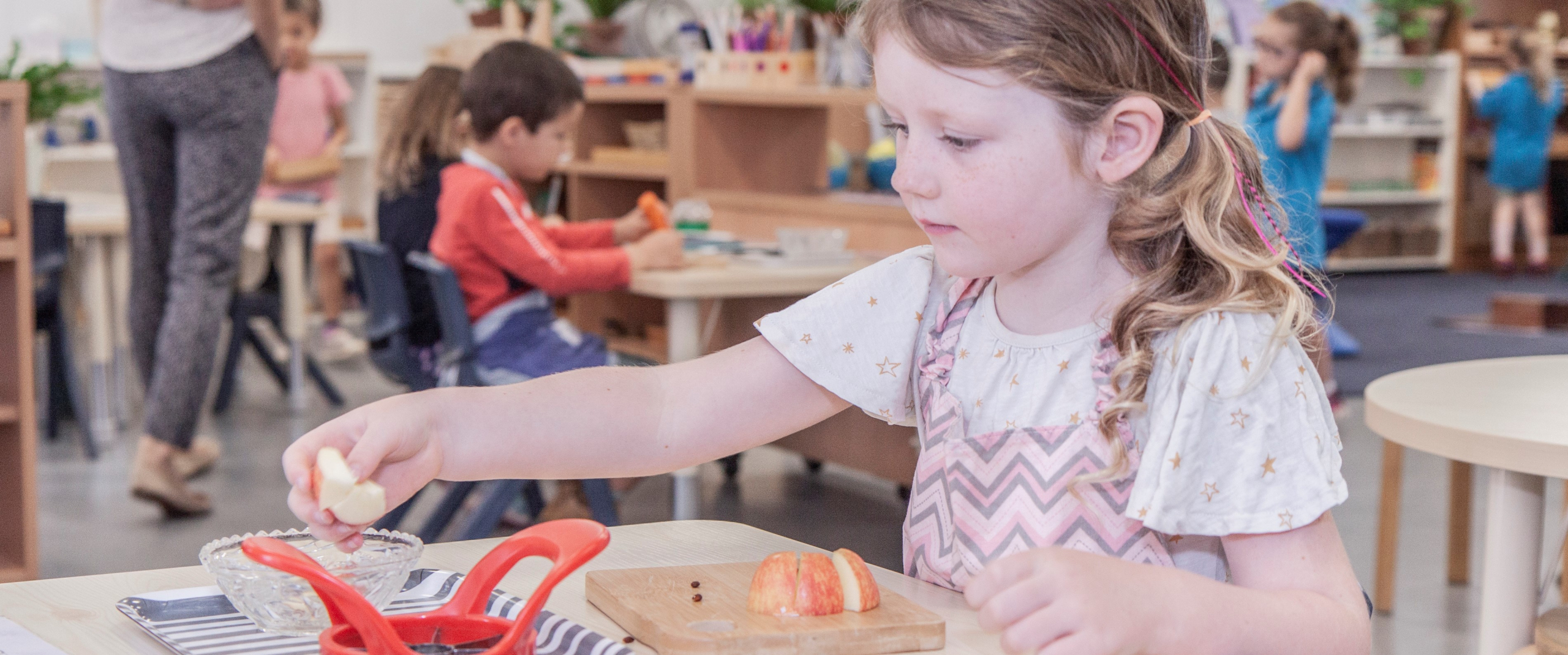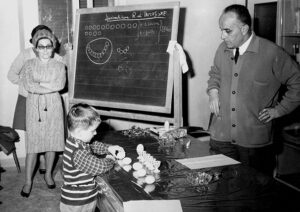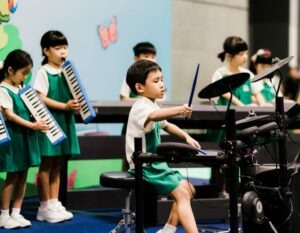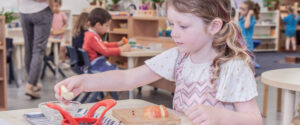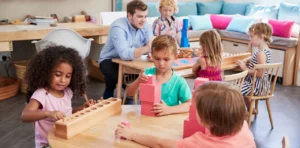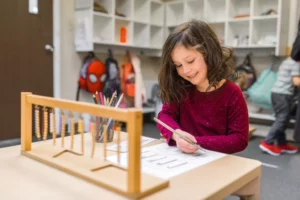Neurodiversity, a term that advocates for viewing neurological differences as natural and varied facets of the human experience, has gradually gained recognition. This perspective considers conditions like autism, ADHD, dyslexia, and others not as deficits, but as variations in the vast spectrum of human cognition. Within this context, the Montessori method of education offers a comprehensive and adaptable approach that accommodates and values the uniqueness of every learner. The Montessori method’s inherent flexibility, emphasis on individual exploration, and respect for each child’s unique pace and interests make it an apt model for embracing neurodiverse learners. Before delving deeper into how Montessori education aligns with the principles of neurodiversity, it’s essential to understand the core tenets of both and the societal shifts prompting their convergence.
Individualized Learning Paths
At the heart of Montessori’s ethos is a profound respect for each child’s individual learning journey. Rather than employing a rigid, standardized curriculum, Montessori educators attentively observe each student, crafting learning experiences that align with their distinct needs, strengths, and passions. For neurodiverse students, this tailored approach can be especially empowering, allowing them to engage with learning in ways that resonate with their cognitive styles. In an era where standardized tests and one-size-fits-all education models are prevalent, the concept of individualized learning paths offers a refreshing and more holistic approach to teaching and learning. In a Montessori classroom, students aren’t rushed through concepts. Neurodiverse students, who may need varying amounts of time to grasp different subjects, benefit immensely from this flexibility. Recognizing that some neurodiverse students might get overwhelmed, Montessori environments can be adapted to include quiet corners or sensory spaces where students can regroup and self-regulate. Neurodiverse students are encouraged to collaborate, communicate, and engage with classmates, fostering social skills and emotional understanding in an inclusive environment.
Sensory-Rich Environments
Montessori classrooms are meticulously designed to offer an array of hands-on, sensory materials. These range from sandpaper letters that engage the sense of touch to musical bells that cater to auditory learners. Such multisensory tools can be particularly beneficial for neurodiverse students, enabling them to connect with concepts in a way that aligns with their sensory preferences. A sensory-rich environment offers a variety of stimuli across the main sensory domains: visual, auditory, tactile, olfactory, gustatory, vestibular (balance and movement), and proprioceptive (awareness of body position). Such environments are designed to be both engaging and adaptable, ensuring that individuals can interact with and control their sensory experiences. When creating a sensory-rich environment, it’s crucial to consider the target audience’s specific needs and preferences. What might be stimulating and enjoyable for one individual could be overwhelming or distressing for another. Therefore, adaptability is key, allowing individuals to control and modify their sensory experiences.Sensory-rich environments represent a holistic approach to experience, recognizing the profound impact our senses have on our cognition, emotions, and overall well-being.
Self-Paced Exploration
One of the defining attributes of Montessori education is its endorsement of self-directed learning. Students are encouraged to progress at their own rhythm, delving deeply into areas that pique their interest. This autonomous approach can be especially conducive for neurodiverse learners, many of whom flourish when they can engage deeply and meaningfully with subjects of interest. At its core, self-paced exploration is about autonomy. It empowers learners to take control of their educational journey, deciding when, how, and what they learn based on their personal interests and readiness. This approach allows learners to move through materials or activities without being confined to a rigid timeline or sequence. Autonomy in learning often leads to increased motivation as learners engage with topics that resonate with their interests. The approach not only caters to diverse learning styles and needs but also fosters critical life skills, such as autonomy, self-regulation, and resilience.
Structured and Predictable Environments
Many neurodiverse individuals find solace in environments that offer consistency and predictability. Montessori classrooms, characterized by their organized materials and established routines, provide this structure. This creates a learning space where students can exercise autonomy within a well-defined and reassuring framework. Such environments are known to instill a sense of security and stability, especially in educational and therapeutic contexts. The structured environment allows children, including those with neurodiverse profiles, to work independently, building confidence and self-reliance. The mixed-age groupings common in Montessori classrooms promote peer mentoring, with older children guiding younger ones. This can be particularly helpful for neurodiverse students who benefit from peer modeling. The mixed-age groupings common in Montessori classrooms promote peer mentoring, with older children guiding younger ones. This can be particularly helpful for neurodiverse students who benefit from peer modeling. The Montessori approach’s intrinsic structure and predictability offer a harmonious blend, ideal for neurodiverse learners. By recognizing and honoring individual differences, Montessori environments become sanctuaries where every child, regardless of neurotypical or neurodiverse profiles, can feel valued, understood, and empowered. In the context of “Harmonizing Minds,” the Montessori method showcases how educational environments, with the right structure and intention, can truly cater to the mosaic of human minds.
Social Inclusion and Collaboration
Integral to Montessori pedagogy is the emphasis on collaborative learning. Through mixed-age groupings and team-based projects, students are constantly navigating social dynamics, fostering mutual respect and understanding. This environment of shared learning cultivates acceptance, ensuring that both neurodiverse and neurotypical students appreciate the strengths and perspectives of their peers. Recognizing that every child brings a unique set of strengths to the table is foundational in Montessori. This recognition is especially important for neurodiverse students, whose unique perspectives can enrich group dynamics. Neurotypical students often serve as role models for their neurodiverse peers, demonstrating social norms and behaviors. Conversely, neurodiverse students can teach their peers empathy, understanding, and appreciation for diverse ways of thinking and being. Montessori educators are trained to adapt their teaching to cater to each child’s unique needs, ensuring that neurodiverse students are not just included but are active, valued members of the community.
Holistic Nurturing
Dr. Maria Montessori’s vision was not confined solely to academics; she envisioned education as a means to nurture the holistic development of a child. This all-encompassing approach fosters values like empathy, patience, and mutual respect, which are paramount in a classroom that celebrates neurodiversity. Montessori materials and curricula are meticulously designed to ignite curiosity and foster deep understanding. Each activity or material challenges the child to think critically, solve problems, and engage with the content actively. By cultivating reverence for all life and encouraging introspective practices like silence exercises, Montessori nurtures the child’s spiritual well-being and connection to the larger universe. Neurodiverse students often benefit from having a predictable and calm environment where they can retreat and regroup. Montessori classrooms often feature such spaces, acknowledging the varied emotional and sensory needs of students.
Conclusion
The Montessori method, with its adaptability and holistic view of education, aligns beautifully with the principles of neurodiversity. By recognizing the innate potential in every child and crafting environments that cater to diverse cognitive profiles, Montessori education epitomizes inclusive pedagogy. As society progresses towards greater acceptance and understanding of neurodiversity, educational models like Montessori will undoubtedly play a pivotal role. They not only accommodate diverse learners but also showcase how, when given the right environment and tools, every mind can thrive. This celebration of individual potential, rooted in respect and understanding, underscores the beauty and depth of both Montessori and the neurodiversity movement. In the confluence of these two philosophies, we find a model for education that truly cherishes and elevates every unique learner. The Montessori environment does not merely accommodate neurodiverse learners; it celebrates them. It recognizes that every child, irrespective of their neurological makeup, possesses unique strengths, perspectives, and capabilities. In a world where standardization often takes precedence, Montessori stands as a beacon for individualization and inclusivity. The future of education lies not in rigid curricula or standardized tests but in fostering environments where every mind can flourish. Neurodiversity challenges traditional notions of what constitutes ‘normal’ or ‘ideal’ cognitive functioning. In a similar vein, Montessori challenges traditional educational paradigms, urging us to view children as competent, curious, and capable beings.

